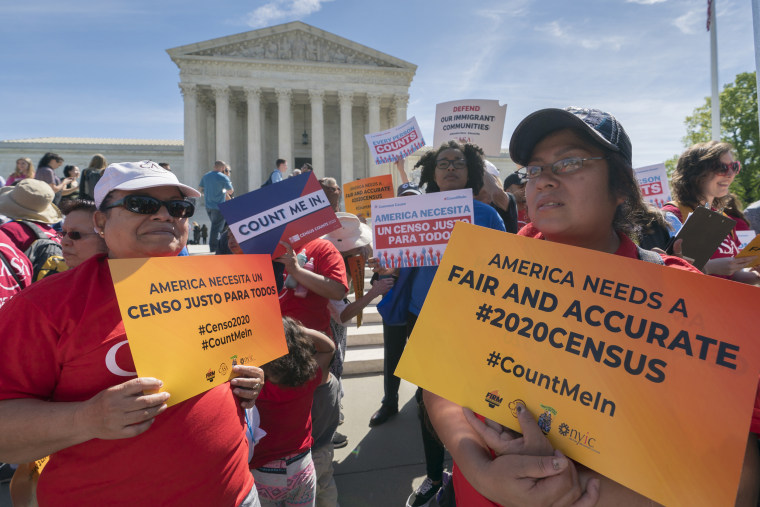Attorneys for two national civil rights organizations have asked a federal judge in Maryland to reconsider whether the Trump administration intentionally discriminated against Latinos and immigrants by trying to add a citizenship question to the 2020 census.
The attorneys for the Mexican American Legal Defense and Educational Fund, or Maldef, and Asian Americans Advancing Justice filed a motion Monday and asked U.S. District Judge George Hazel to overturn part of his decision in a lawsuit challenging the citizenship question. In his ruling, the judge blocked the citizenship question from being on the census but said there was no intentional racial discrimination or conspiracy on the administration's part. The two groups are appealing the discrimination part of the decision.
The groups' request is based on revelations that Thomas Hofeller, a Republican redistricting strategist, wrote in letters and memos that the citizenship question would create an electoral advantage for "Republicans and non-Hispanic whites."
Information on Hofeller’s work, including a 2015 study on how the citizenship question might assist Texas Republicans in legislative elections, emerged last week in court filings.
The court documents suggested Hofeller, who died last year, helped write the letter that the Department of Justice sent the Census Bureau asking that the citizenship question be added.
Maldef's lead attorney on the case, Denise Hulett, said that evidence directly connects Commerce Secretary Wilbur Ross and the administration to Department of Justice officials.
In a document filed with the Supreme Court, the Department of Justice said neither Hofeller nor his 2015 study “played any role whatsoever” in the agency’s letter to the Census Bureau asking for the addition of the citizenship question.
“There is no smoking gun here; only smoke and mirrors,” the department said.
The addition of the question led to several lawsuits challenging the administration. One of the cases is now before the Supreme Court, and a decision could come this month or early next month, although the timing is uncertain. The American Civil Liberties Union filed a motion to inform the court of the evidence, because it became public after arguments in the case were heard.
Opponents of the citizenship question have said it will harm minority communities that will be undercounted and then get less money for programs that are funded based on population; they also say it will also suppress the political power of racial and ethnic minorities.
Congressional and legislative district lines are drawn based on census numbers of men, women and children, regardless of citizenship, immigration status or age. Districts are supposed to comply with constitutional mandates and Voting Rights Act protections against discrimination and other criteria.
An Urban Institute study found that inclusion of the citizenship question would lead to about 4 million people not being counted. Government officials acknowledged in a Supreme Court hearing that the question would reduce census response rates, particularly in immigrant communities.
In the Maldef and Asian Americans Advancing Justice case, Judge Hazel ruled in April that adding the citizenship question violated the Constitution and federal law on administrative procedure. He also ruled that there was not enough evidence to support the legal groups’ claims of intentional discrimination or conspiracy. But that was before the information on Hofeller’s role became public.
According to court filings, Hofeller had conducted an analysis of Texas legislative districts in 2015 on the effect of a citizenship question.
It concluded that if the districts were drawn based on the population of citizens of voting age and not population overall, then Hispanics, who tend to vote Democrat, and their children would be excluded, helping Republicans.
“Because the evidence strongly demonstrates an unlawful and discriminatory motive," said Thomas Saenz, president and general counsel of Maldef, "the question must be removed, regardless of what the Supreme Court may conclude as to the separate claims before it.”
FOLLOW NBC LATINO ON FACEBOOK, TWITTER AND INSTAGRAM.


